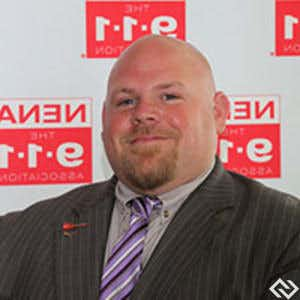Failure To Transfer 911 Call Causes Defibrillator Patient Fatality
This case involves a man who was using a wearable defibrillator vest manufactured for consumer use. While at home alone, the man experienced lightheadedness and lost consciousness. The life vest delivered defibrillation and the man was able to regain consciousness. As per the defibrillator’s instructions, the man contacted the vest manufacturer first instead of 911. While on the line, the man asked the representative on the phone to call someone to help him. The representative refused, stating it was against company policy and instructed the man to go to the emergency room himself. Approximately 3 minutes into the call, the man lost consciousness for the second time. The representative remained on the line and asked another individual to call the man’s wife, who was listed as his emergency contact. The defibrillator helped the man regain consciousness for a second time, at which point the representative, who was still on the phone, told him to call 911 himself. About 20 minutes after ending the phone call, the wife arrived at the home to find the man not breathing. The defibrillator was no longer administering defibrillation. The wife called 911, but the man passed away before emergency responders arrived. The vest manufacturer claimed that because it was located in a different state than the man resided in, its representatives would not have been able to call 911 to assist someone out-of-state. An expert in 911 dispatch familiar with the details and logistics of transferring out of state 911 calls and locating the municipalities direct agency was sought to review the case.
Question(s) For Expert Witness
1. Please describe your 911 dispatch experience.
2. What is the typical protocol when transferring a 911 call to another state and locating the municipalities direct agency?
Expert Witness Response E-196419
 I served as a dispatcher and supervisor for 13 years in a rural county in the Mid-West. I left that location to take the position as 911 communications director in a larger county. I am currently the president of a national emergency number association, an organization of over 13,000 members of 911 professionals across North America. If the defibrillator company manufactures a vest that is sold all over the county and the customers are told to call the manufacturer in the event of loss of consciousness, that company needs to have a policy to call for assistance for its customers. While you can't call 911 from an out of state number, all PSAPS have non-emergency numbers that the manufacturer could and should have called to get the decedent. I would be interested to see the instructions that are provided to the individuals that are sold the product. I personally find it hard to believe that if someone is having a medical emergency that they are to call the manufacturer instead of calling 911. Someone should never be instructed to go to the emergency room on their own. The person could lose consciousness on the way, lose control of the vehicle, and/or put others in jeopardy. It would not be beneficial for the company to call 911 in their local area but they should have a copy of the PSAP database so they could directly dial the PSAP where the customer lives.
I served as a dispatcher and supervisor for 13 years in a rural county in the Mid-West. I left that location to take the position as 911 communications director in a larger county. I am currently the president of a national emergency number association, an organization of over 13,000 members of 911 professionals across North America. If the defibrillator company manufactures a vest that is sold all over the county and the customers are told to call the manufacturer in the event of loss of consciousness, that company needs to have a policy to call for assistance for its customers. While you can't call 911 from an out of state number, all PSAPS have non-emergency numbers that the manufacturer could and should have called to get the decedent. I would be interested to see the instructions that are provided to the individuals that are sold the product. I personally find it hard to believe that if someone is having a medical emergency that they are to call the manufacturer instead of calling 911. Someone should never be instructed to go to the emergency room on their own. The person could lose consciousness on the way, lose control of the vehicle, and/or put others in jeopardy. It would not be beneficial for the company to call 911 in their local area but they should have a copy of the PSAP database so they could directly dial the PSAP where the customer lives.
About the author
Wendy Ketner, M.D.
Dr. Wendy Ketner is a distinguished medical professional with a comprehensive background in surgery and medical research. Currently serving as the Senior Vice President of Medical Affairs at the Expert Institute, she plays a pivotal role in overseeing the organization's most important client relationships. Dr. Ketner's extensive surgical training was completed at Mount Sinai Beth Israel, where she gained hands-on experience in various general surgery procedures, including hernia repairs, cholecystectomies, appendectomies, mastectomies for breast cancer, breast reconstruction, surgical oncology, vascular surgery, and colorectal surgery. She also provided care in the surgical intensive care unit.
Her research interests have focused on post-mastectomy reconstruction and the surgical treatment of gastric cancer, including co-authoring a textbook chapter on the subject. Additionally, she has contributed to research on the percutaneous delivery of stem cells following myocardial infarction.
Dr. Ketner's educational background includes a Bachelor's degree from Yale University in Latin American Studies and a Doctor of Medicine (M.D.) from SUNY Downstate College of Medicine. Moreover, she is a member of the Board of Advisors for Opollo Technologies, a fintech healthcare AI company, contributing her medical expertise to enhance healthcare technology solutions. Her role at Expert Institute involves leveraging her medical knowledge to provide insights into legal cases, underscoring her unique blend of medical and legal acumen.
Find an expert witness near you
What State is your case in?
Subscribe to our newsletter
Join our newsletter to stay up to date on legal news, insights and product updates from Expert Institute.



